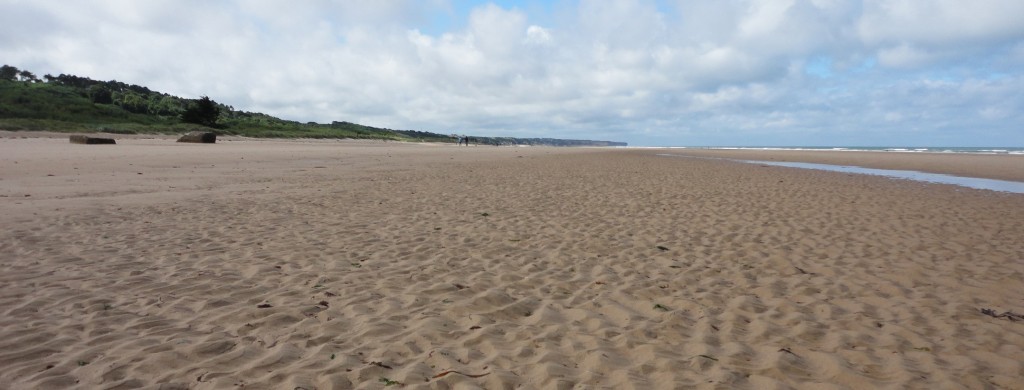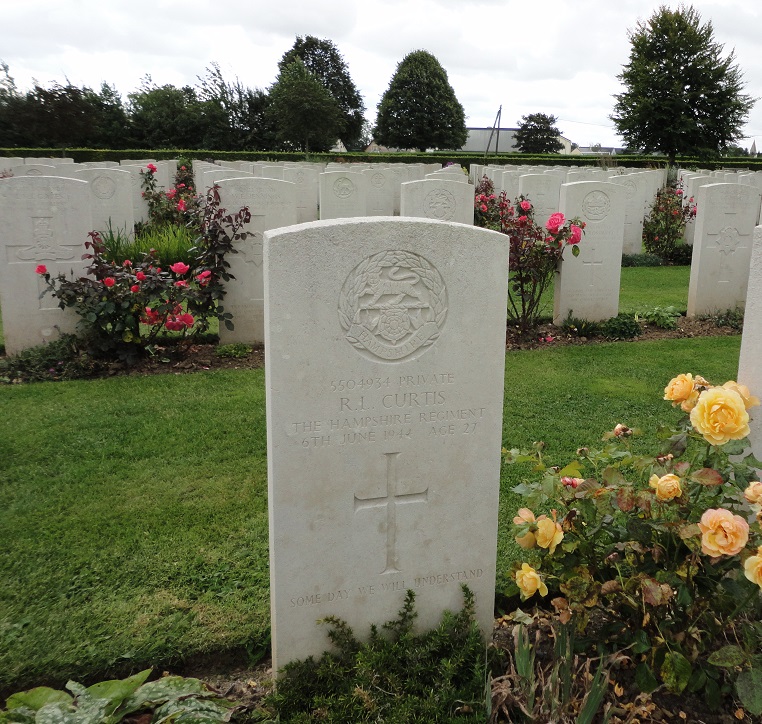The Second World War still looms large in Britain’s popular culture, in comedies and in documentaries about the Nazis. Germany has moved on; with most Britons now too young to remember, we need to do the same.
First published on Beacon.

BBC2, the national broadcaster’s second television channel, has recently been celebrating 50 years on air by revisiting some of its greatest hit comedies. The most famous of these is Fawlty Towers, first broadcast in 1975, in which John Cleese plays the manic misanthropist hotelier.
It hasn’t dated well. Like many BBC programmes from the 1970s and 1980s it was filmed on a small budget with wobbly sets and microphones in shot, but that can be forgiven. It’s more that Basil Fawlty comes across as a nasty piece of work. You were always meant to laugh at him, rather than with him, but I had forgotten how extreme his little Englander attitudes were.
A running gag features him hitting Manuel, a staff-member whose mistakes (often caused by Fawlty and his wife) are excused with the catchphrase “he’s from Barcelona”. When an episode was shown last weekend, your correspondent found it much less funny than an episode of the surrealist slapstick comedy series The Goodies from the same era, featuring a giant kitten called Twinkle rampaging around central London.
Basil Fawlty’s best-known line is probably “Don’t mention the war,” from an episode which ends up with him goose-stepping in front of a family of Germans – in other words, he totally fails to take his own advice. In less extreme fashion, Britain has failing to not mention the Second World War for much of 70 years since the D-Day landings. Repeats of Dad’s Army, a comedy series about an elderly Home Guard unit first shown in 1968, are still a mainstay of BBC2. (Although, they have aged well, and the war is mostly a backdrop for achingly funny social comedy.) Leaving aside sitcoms, recent years have seen many UK TV channels showing a seemingly endless parade of Nazi-themed programmes.
Veteran Frederick Glover watches soldiers parachute from an aeroplace in Ranville in Normandy yesterday, including 89-year-old Jock Hutton, repeating the jump he made 70 years ago. Photo: Thomas Bregardis/AFP/Getty Images
Today’s 70th anniversary of the D-Day landings will be marked by the Queen visiting the Normandy beaches, and the anniversary of the war’s end next year will no doubt be commemorated too. But, in terms of big acts of remembrance, we should leave it there. After the Last Post has sounded for those who actually took part in the war, Britain needs to let it go.
It’s fairly obvious why Britain finds this so hard to do: at the Second World War, the UK was one of three victorious powers, symbolically equivalent to the USSR and USA, led by a latter-day King Arthur in the shape of Winston Churchill – voted the greatest Briton of all time by 456,000 people in 2002, after a series of programmes on (again) BBC2. In reality, while Britain has every reason to be proud of its war record, even then the country was a junior partner to America and the Soviet Union; and it worked out as Britain’s historical swansong as a major power, not least because the war pretty much exhausted and bankrupted the country.
As I may have implied once or twice in this series, Britain’s big problem with moving forwards is that it is usually looking backwards. Many current British attitudes derive from the Second World War, including a mistrust of European institutions and countries, which has led Britain to play a grudging role in the European Union. They have also hindered engagement with European countries which have similar attitudes to ours – most importantly Germany. Things have improved since Margaret Thatcher hoped that the two Germanys would not reunite after the fall of the Berlin Wall, but remain strained.
West Germany did move on after the war, rebuilding its economy while purging its politics (though not always as thoroughly as many would have wished). When the Berlin Wall fell, it didn’t have to re-unite with the DDR, something which cost it immense amounts of money, and it didn’t have to trade its currency in for the euro in the interests of European solidarity. But it did both. Its post-war history has been pretty inspirational, and it now manages to be Europe’s most powerful country (economically at least) without worrying anyone, although plenty get annoyed with it. Britain has regained a taste for economic success since the 1980s, but booms built on financial services and house prices can seem superficial when compared with German long-term policies building up industries.
Modern Germany is far from perfect, but it is rightly widely admired. A new global opinion poll of 24,542 people (by GlobeScan for the BBC, in this case the World Service rather than BBC2) found 60% of respondents have a positive view of Germany, the best result, with the country having the second-lowest score for negative views. It was followed by two of the countries that took part in D-Day: Canada (which had the lowest score for negative views), then the UK. France came fourth on both. (The US was a fair way down the table, with only slightly more positive than negative views. This appears to be partly due to rapidly declining approval ratings in countries including Germany, due to Edward Snowden’s surveillance revelations.)
One of BBC2’s greatest comedies was Yes, Minister, which featured a bumbling government minister being manipulated by civil servants. The writers later admitted that they got much of their material from the civil service, and this quotation from a 1981 episode on Britain’s role in Europe sounds exactly the sort of thing administrators would mutter to each other behind closed doors:
We went into it to screw the French by splitting them off from the Germans. The French went in to protect their inefficient farmers from commercial competition. The Germans went in to purge themselves of genocide and apply for readmission to the human race.
It’s a brutal way of putting it, but reflects what some of those who remember the war felt, and in 1981 many would have been in their fifties and sixties, running the country. 70 years after D-Day, Germany has paid the price of any readmission, and then some.
Fred Holborn, a veteran of the Fleet Air Arm, salutes flags on Gold Beach in Normandy yesterday. Photo: Peter Macdiarmid/Getty Images
There’s a final reason we should leave the Second World War behind; for the vast majority of us, it was never ours in the first place. In Britain, the oldest baby boomers are 68, and at most might remember the tail-end of rationing. Anyone actually able to remember the war is well into their 70s. Those of us who are too young have a habit of sentimentalising and idealising it, seeing it as a time of heroes and tragedies. We have evidence to the contrary, such as Evelyn Waugh’s Sword of Honour trilogy chronicling the boredom and seeming futility of warfare, but it tends to be overwhelmed by the likes of jaunty heroics such as The Great Escape, the theme tune for which England fans will almost certainly sing at the World Cup, shortly before the team is ejected on penalties by Germany as is traditional.
The header picture is of a peaceful, gently sloping beach, with the kind of smooth sand ideal for dogs, children and land-surfing. That made Omaha Beach one of the worst possible places to invade Europe, but that is what thousands of American soldiers did 70 years ago, this morning. The spectacular US cemetery is a short distance behind the low hills to the left, in country so peaceful it is hard to believe what happened here; these then-and-now photos get across the contrast beautifully.
One of the largest British war cemeteries is a few miles away in the historic city of Bayeux; later today, after a service at the cathedral, veterans will walk from the city’s cathedral to a remembrance ceremony here. The Commonwealth War Graves Cemetry is less showy than the American one, looking like an enormously-extended English church graveyard surrounded by unremarkable suburbia, near a giant Leclerc supermarket. It is passed by a specially slowed stretch of the city’s ring-road, at this point named Boulevard du 6 Juin. Further round, the road takes the names Boulevard Maréchal Montgomery and Boulevard Winston Churchill.
Another difference between the two cemetries is that the American memorials carry name, rank, unit and date of death, but the families of the British and Commonwealth dead were also invited to add an epitaph.
Private Ronald Leonard Curtis of the 1st battalion of the Army’s Hampshire Regiment died 70 years ago today in Normandy at the age of 27. His name is inscribed on a war memorial in the village of Marchwood in the New Forest, but he was the son of Mr and Mrs Frederick Curtis, and husband of Nonee Marguerite Curtis, of Leighton Buzzard in Bedfordshire. His tombstone in Bayeux reads “Some day we will understand”.

